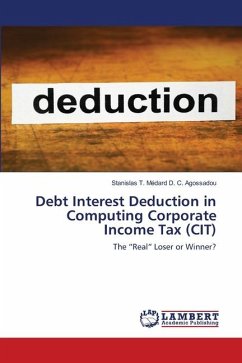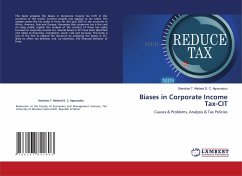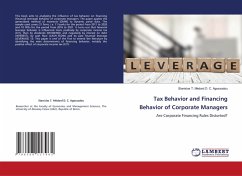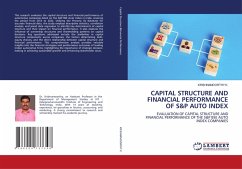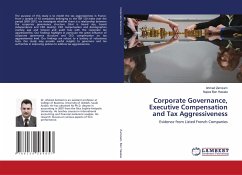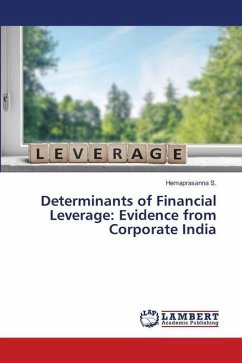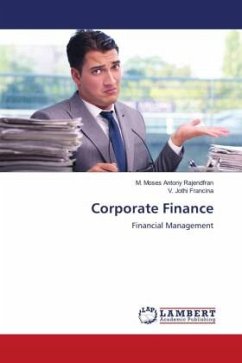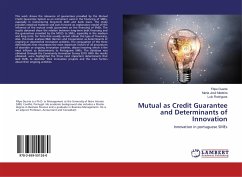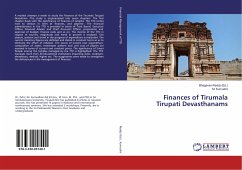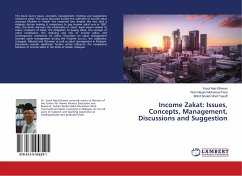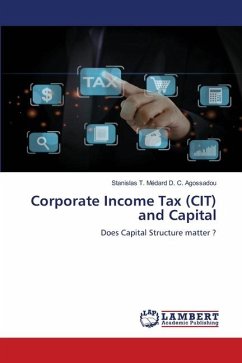
Corporate Income Tax (CIT) and Capital
Does Capital Structure matter ?
Versandkostenfrei!
Versandfertig in 6-10 Tagen
29,99 €
inkl. MwSt.

PAYBACK Punkte
15 °P sammeln!
This research consists of verifying whether corporate income tax (CIT) has an effect on capital given the financing risk incurred.The sample starts with a case study of two hypothetical identical firms, one indebted and the other non-indebted, with the same profitable investment project over a period of time, and ends with 101 pairs of identical firms belonging to different classes of financing risk. The hypothesis of non-gratuity of cost and income is used, and capital markets are assumed to be pure and perfect.The results confirm that CIT has no effect on the structure, value, cost and retur...
This research consists of verifying whether corporate income tax (CIT) has an effect on capital given the financing risk incurred.The sample starts with a case study of two hypothetical identical firms, one indebted and the other non-indebted, with the same profitable investment project over a period of time, and ends with 101 pairs of identical firms belonging to different classes of financing risk. The hypothesis of non-gratuity of cost and income is used, and capital markets are assumed to be pure and perfect.The results confirm that CIT has no effect on the structure, value, cost and return of capital for a given financing risk, and reveal the existence of a third source of financing called "public capital", whose cost is the corporate capital tax (CCT) rate. There is no longer any question of thinking about the optimum capital structure, which is a pure financial illusion. This paper is one of the first to show that corporate tax (CT) has no effect on capital, and to proposea model that explains capital structure behavior in the presence of CT.



